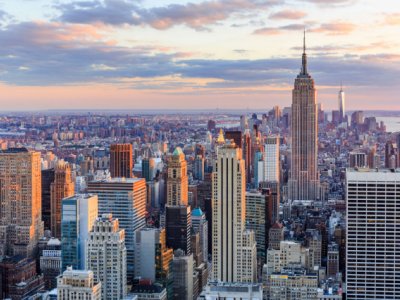
WHY THE CITY IS HERE TO STAY
In the course of just two generations the landscape in which global mission is conducted has changed beyond recognition from a rural to an urban setting.
City dwellers usually have an ambivalent attitude to their environment. The intensity you find in a city brings out the best and the worst in people. Education, business, commerce, music, arts and sport all flourish where people gather. Unfortunately so do crime, squalor, mistrust and overcrowding.
Scripture itself seems to have a love-hate relationship with the city. In Genesis 11, the people decide to build a city and a tower to boost their self-esteem and God, in the first recorded incidence of nimbyism, refuses planning permission and disperses the people. The city of Babylon is a linguistic derivative of Babel and in the Book of Revelation it is held up as the symbol of all human society which opposes God and which comes under his judgment. And yet the city also serves God’s purposes.
Jerusalem is the sacred capital of God, and it was in this city that God’s Spirit was poured out at Pentecost. The bustling mobility of a city, with its pilgrims, traders and travellers made it an ideal location for the dispersal of the good news of the death and resurrection of Jesus in the same city.
When people are thrown together in cramped settings, the intensity of the experience provides the ideal breeding ground for rapid social change which issues in blessings and curses. In spiritual terms the city has been both the location of Christian renewal and where migrant workers have thrown off the traditions of the village and become less committed to their God.
Scripture encourages us to take the city’s welfare seriously. In Deuteronomy 28:3, God encourages the Israelites to believe they will be ‘blessed in the city and blessed in the country’. It is a mistake to think that God’s blessing is greater when we are nearer to nature or that he withdraws his patronage from the city in the way the story of the tower of Babel implies. A density of people in one place means an intensification of God’s concern, not a lessening of it, for life is all about relationships. And in his instruction to the exiled Israelites in Babylon, God says through Jeremiah: ‘Seek the welfare of any city to which I have exiled you, and pray to the Lord for it; on its welfare your welfare will depend (Jeremiah 29: 5-7), thus proving that enlightened self-interest isn’t only the domain of economists!
In 1900, 10% of people lived in cities; by 2007 this had risen to 50%; by 2050 it is projected to be 75%. In the course of just two generations the landscape in which global mission is conducted has changed beyond recognition from a rural to an urban setting. The opportunities and the risks are there for all to see, yet we should be encouraged by the salvation narrative which begins in a garden and ends in a city. The last judgment in Revelation is uncompromising but not purely destructive. There is a subtle yet beautiful truth secreted into the final words of the prophecy. Speaking of the New Jerusalem, it is said that: ‘People will bring into it the glory and honour of the nations (Revelation 21:26). Human creativity and imagination is not wasted, but finds its own consummation in the city of God. The new creation is multicultural, and it will harness the talents of the nations to the glory of God.
POPULAR ARTICLES

Obama's Covert Wars
The use of drones is going to change warfare out of all recognition in the next decades.

Through A Glass Starkly
Images of traumatic incidents caught on mobile phone can be put to remarkable effect.

What Are British Values?
Is there a British identity and if so, what has shaped the values and institutions that form it?


